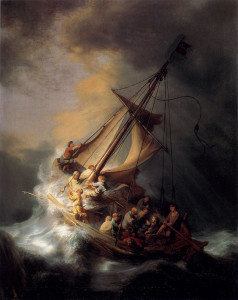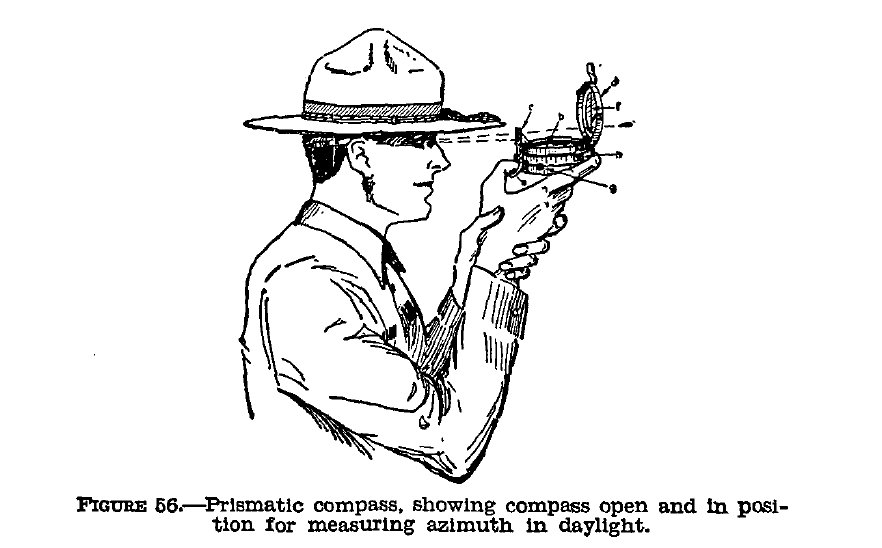[featured-image single_newwindow=”false”]
Historically the compass developed over time and was eventually used as a sure guide for the seafarer who desired to know which direction he was headed. It was and still is an invaluable aid to the mariner and has only grown in its accuracy. In addition to direction, the compass can be used alongside other instruments to calculate heading, latitude and longitude.
Yet, the most reliable attribute of a compass is its ability to always point north. Now of course you could have a faulty compass, but as long as you have a well functioning compass it will point north and thereby will always tell you in which direction you are headed depending on where you are facing.
The Compass
The compass for the PILGRIM SOUL is the Magisterium of the Catholic Church. The Magisterium refers to the Pope and the Bishops in communion with him. As the Catechism explains:
In order to preserve the Church in the purity of the faith handed on by the apostles, Christ who is the Truth willed to confer on her a share in his own infallibility. By a “supernatural sense of faith” the People of God, under the guidance of the Church’s living Magisterium, “unfailingly adheres to this faith.”
The mission of the Magisterium is linked to the definitive nature of the covenant established by God with his people in Christ. It is this Magisterium’s task to preserve God’s people from deviations and defections and to guarantee them the objective possibility of professing the true faith without error. Thus, the pastoral duty of the Magisterium is aimed at seeing to it that the People of God abides in the truth that liberates. To fulfill this service, Christ endowed the Church’s shepherds with the charism of infallibility in matters of faith and morals. (CCC 889-890) [Emphasis added]
Thus, just as a compass ALWAYS points north, so too does the Magisterium of the Catholic Church ALWAYS point in the right direction in matters of faith and morals. A PILGRIM SOUL out at sea amidst the storms of the world can have great assurance that they are headed towards Heavenly Shores provided they are following the guidance of the Magisterium and are obedient to them.
 This is why the Church is often called the “Barque of Peter,” for the Pope is the successor of Peter and has been given the task of leading the Church to Blessed Shores.
This is why the Church is often called the “Barque of Peter,” for the Pope is the successor of Peter and has been given the task of leading the Church to Blessed Shores.
Unfortunately, many of us in our fallen nature cling to our own compass. We choose to follow our desires and believe that only our efforts will secure happiness. As a result, we lay aside the infallible compass in favor of our own which instead of pointing north, points south and leads us into even more chaotic waters. Somehow we think that our own opinions are greater and we scoff at the idea that there could be such a thing as an infallible compass.
However, as any veteran mariner would attest, you must trust the compass given to you. To try to build our own compass would be futile. Trust is the central issue here and in order to trust, we must humble ourselves realizing that there is a greater power in control. Why would Jesus Christ found a Church and then abandon it? Wouldn’t it make sense that He would grant His apostles a “double portion” of His Spirit to continue His work?
Now some fellow mariners might protest and say that on account of the wicked deeds done by many of those who held the compass that we should not obey them. For example, out of the 266 popes of the Catholic Church there were a handful who openly committed grave sins such as adultery. There were even a few children who were the offspring of popes. Does this mean that they were a “faulty” compass? No. On the contrary, while many popes did not live according to the teachings of the Church, they never publicly changed Church teaching or taught falsehood. That is a miracle in itself and gives us assurance that we can always trust what the pope teaches in faith and morals, just as we can always trust a compass to point us in the right direction.
This is why during a period of great trial in the Church the founder of the Jesuits, Saint Ignatius of Loyola, added a “fourth” vow of total obedience to the Pope. He knew that in order to reach true sanctity one must remain faithful to the Vicar of Christ.
One image we must keep in mind is that the Church is NOT a museum of Saints; it is a HOSPITAL for sinners. We are all fallen and in need of rehabilitation and thankfully the Divine Physician knows this and has provided the necessary medicine to bring us to full health. In fact the greatest Saints were those who knew they were sinners and were in need of healing. Consequently, while the Church is full of sinners the teaching of the Magisterium has been preserved by Christ from error in matters of faith and morals.
We now have the nautical chart and compass necessary to set off from shore. However, the journey is not an easy one and so to further ensure we are headed for Blessed Shores we need a “sextant.” More on this essential instrument in our next article.
Read the Entire Series
- Four Keys to Reading Scripture That Will Lead You to Safe Harbors
- How the Church is Portrayed as a Ship in Theology & Architecture
- One of the Most Ancient Spiritual Analogies

